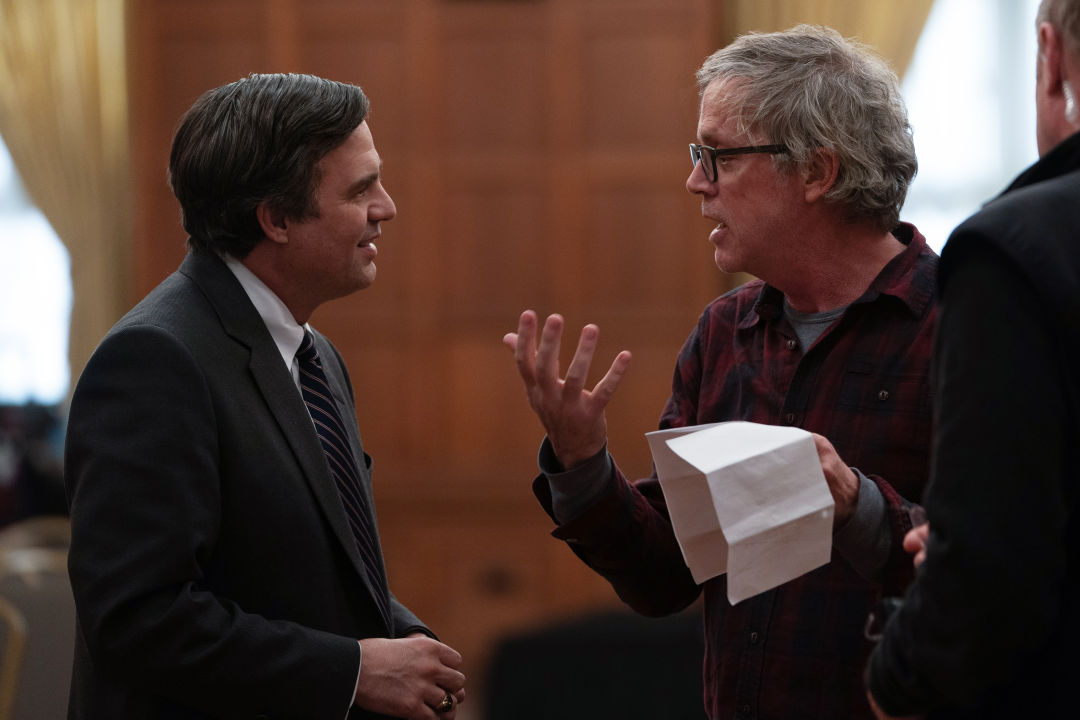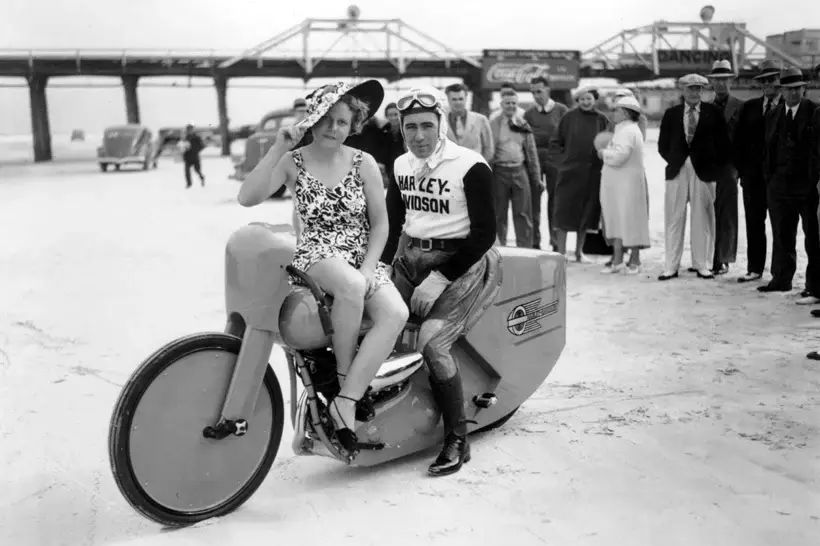For Portland Filmmaker Todd Haynes, Truth Is Richer Than Fiction

Actor Mark Ruffalo (left) and director Todd Haynes (right) on the set of DARK WATERS, a Focus Features release.
When Sam Adams was the mayor of Portland, he hung a portrait of Todd Haynes in city hall. Linked to Gus Van Sant, Stumptown’s other great directorial export, by the early-90s New Queer Cinema movement (Van Sant’s My Own Private Idaho and Haynes’s Poison are moody classics of the tradition), the filmmaker and sometime-Portlander is a sort of secular saint for many in the Rose City and beyond.
His catalogue is sprawling—I’m Not There explores Bob Dylan through the lens of six characters, none of them named Bob Dylan; Mildred Pierce is a straightforward HBO melodrama adapted from a classic novel—but linked by a fascination with identity, its mutability, and the power of symbols (he literally holds a degree in semiotics from Brown).
His latest film, Dark Waters (which hit New York and LA last Friday and opens in Portland tomorrow), feels like a hard left turn. For one, it’s his first ripped-from-the-headlines project: the story of Rob Bilott, a corporate attorney in Cincinnati who unraveled harrowing chemical-based malfeasance by DuPont over more than a decade. Mark Ruffalo, the film’s producer and star, brought a script to Haynes that Haynes then helped retool, but the finished product lacks most of his thematic hallmarks—domestic suffocation, interrogations of stardom, queerness. Still, certain Haynesian preoccupations peek through: Ruffalo is constantly dwarfed in the frame by Forces Beyond His Control, and Anne Hathaway fights for primacy with an occasionally-interesting but underwritten “I’m more than just a wife!” subplot. The result is a doom-soaked, standard-but-stirring legal thriller whose most effective moments worm under your skin and stay there.We spoke with Haynes about working with real, living subjects, and the role of whistleblower films in contemporary life. Below is a transcript of our conversation, lightly condensed and edited for clarity.
The most repeated line about Dark Waters is that it’s your most “straightforward” or “accessible” film. Do you feel that way?
Hmm… “straightforward and accessible.” No. I didn’t really have those goals or characterizations in mind. It makes me question the assumption of a kind of homogeneity among all my other films, that they all belong in a wholly different category, when I see each one of them as something I hadn’t done before.
This project came to me from Mark Ruffalo, but he wouldn’t have known from my other films how much I loved great whistleblower films and how regularly I would turn to them. I go back to the [Alan J.] Pakula “Paranoia Trilogy” [Klute, The Parallax View, and All the President’s Men] when I’m preparing my own films. There’s something about All the President’s Men, it’s a movie I can watch on a regular basis. It puts me into some present tense of watching a process evolve, because we know the outcome.
It’s in the world already.
Yeah, we knew it when the movie first came out. That’s not why you go to see that film. There’s something else going on there that has a very direct, foundational relationship to the linear medium of movies. We are watching something happen in time, we’re watching a story be found and felt and shaped in the dark, and you willingly return to that darkness each time you watch it. You also become extremely aware of these characters’ alienation from the world in the way the camera describes space, and ultimately, their sense of dread, their sense of futility, their sense of tremendous paranoia daring to take on systems of power, which operate all the more fiercely because they’re never seen.
I was struck by—I wouldn’t say “how little the movie cares for plot points,” but the sense that it’s more focused on marinating in the psychological effects of whistleblowing than moving you from point A to point B.
Yeah. I mean, these movies, when they work, you have to trust that all the legalese or the journalistic process is all there, that the foundation is solid, but the audience also has to feel that they’re never being asked to repeat it back to you. They’re involved in a much more specific, tenuous, human procedure.
More primal.
Exactly. We did our best to accommodate that in this story. We made sure the legal story felt grounded, felt authentic, that we were showing just enough of it. But your attention is on something else. You’re following a process, and the connectivity of the people involved, and the way that they uniquely cross these class lines and divisions of pedigree and status to make the process happen. But by the same token, they’re as separated from each other as they are linked. The system keeps everybody in place.
There’s that early scene at a company dinner where you give us the briefest glimpse of the all-black waitstaff. You throw in these little breadcrumbs to remind us that some structures can’t be transcended.
And again, this is all true. I wish we had intended it, but that came directly from the actual story. The one thing we fibbed on was the appearance of nonwhite partners at Taft Law—it happened just a little later than the bracket of this story.
This isn’t your first film about real people. You’ve tackled Karen Carpenter with Superstar, Bob Dylan with I’m Not There, and to an extent, David Bowie with Velvet Goldmine. But none of those are straight, one-to-one true stories about someone who’s still alive. I’m curious if you felt a unique responsibility or it changed the way you approached the storytelling?
I’m not sure if the word is “responsibility” as much as the dramatic choices felt fortified and deepened. I was always surprised by how the specificity of place and the people made a better story.
The Taft Law offices, for example—this labyrinth of early ‘90s interior design, the way the floors were broken up with these 45 degree corridors, the irregular sized windows on walls that had very few right angles, the triangular conference rooms, the glass partitions with the frosted glass stripes on them, all of these things were actually in this place. I would have picked this space to aesthetically describe somebody trying to piece together a story in the dark were it not the actual law offices.
You also have several of the real real figures in this film, playing themselves or other bit parts—the actual Bucky Bailey [whose birth defects were linked to his mother's time at DuPont], for example. Was that your idea?
With Bucky, yes, no question. His story was going to be an anecdotal through line in the film that kept linking us back to the most painful, human cost of this massive and multifaceted malfeasance by this corporation. And he’s the subject of a documentary called The Devil We Know that came out in 2018 that really tells this story using Bucky Bailey as an essential through line. And seeing that, seeing his story told more explicitly than this one, which is more about Rob, made me and Mario Correa, the writer I brought onto the project, adamant that we wanted to have Bucky appear in the film at the end and really, ideally, have the real Bucky play him.
Obviously, when you’re making a movie about West Virginia, you put “Take Me Home, Country Roads” in it. When it plays in this film, it’s ironic. But then you put Johnny Cash’s cover of “Won’t Back Down” over the credits. Is there any irony in that choice, or was that one completely earnest?
Aside from the Tom Petty song itself, there’s something you can’t reduce down when it’s the voice of Johnny Cash performing it. Words kind of fail me to describe what that voice signifies, but it cuts to the core of a sense of struggle, an identification with struggle, an identification with conflict, somebody who speaks out and keeps speaking and keeps performing and keeps enduring. There’s an entire meta-history of American expression in the timbre of that voice.
The John Denver song is something we roll our eyes to, but there’s something incredibly, I don’t know, sad about it, because it conjures a kind of hopeful innocence when we first heard it or sang it in camp or something. But [in the film], you’re watching the branding of the company town by this single employer, while we’re beginning to understand the breadth of their abuses. There’s a sad gloom that hangs over that scene, so there’s something twisted about it—sort of like the Carpenters music in Superstar.
Beyond the obvious takeaways, like, “DuPont is bad,” “Whistleblowing is hard,” “Keep speaking out,” are there any less obvious messages that you’d want an audience to walk away from this film thinking about?
On one hand, this film shows you that [West Virginia cattle farmer] Wilbur Tennant’s wishes that the truth [about DuPont's pollution practices] get out were honored by Rob’s efforts. Truth is the one thing that a company like DuPont can’t afford. But there’s that sense of something bigger that hangs over the look of the film, the feel of the film, the way that all these communities share this dour gloom, this sense that there’s something wrong with the state of the world. What do we do in light of all that? Do we put our heads back in the sand and continue cooking on Teflon and say, “Ah, well, forget it, who cares?” No. We use knowledge to counter despair, and we somehow move forward.
These kinds of movies don’t provide silver bullets. They don’t solve the problems for us. They become primers for how we life an imperfect life. We’re not going to remove capitalism from the world. We’re not gonna remove patriarchy from the world. We’re not gonna remove PFOA [the toxic chemical in Teflon] from all the water systems…
And almost everyone’s blood.
Exactly. But we have to honor and continue to take example in fights like this, and keep fighting and keep moving forward. It’s a movie that has that ambivalence and ambiguity of life, and I like that about it.




